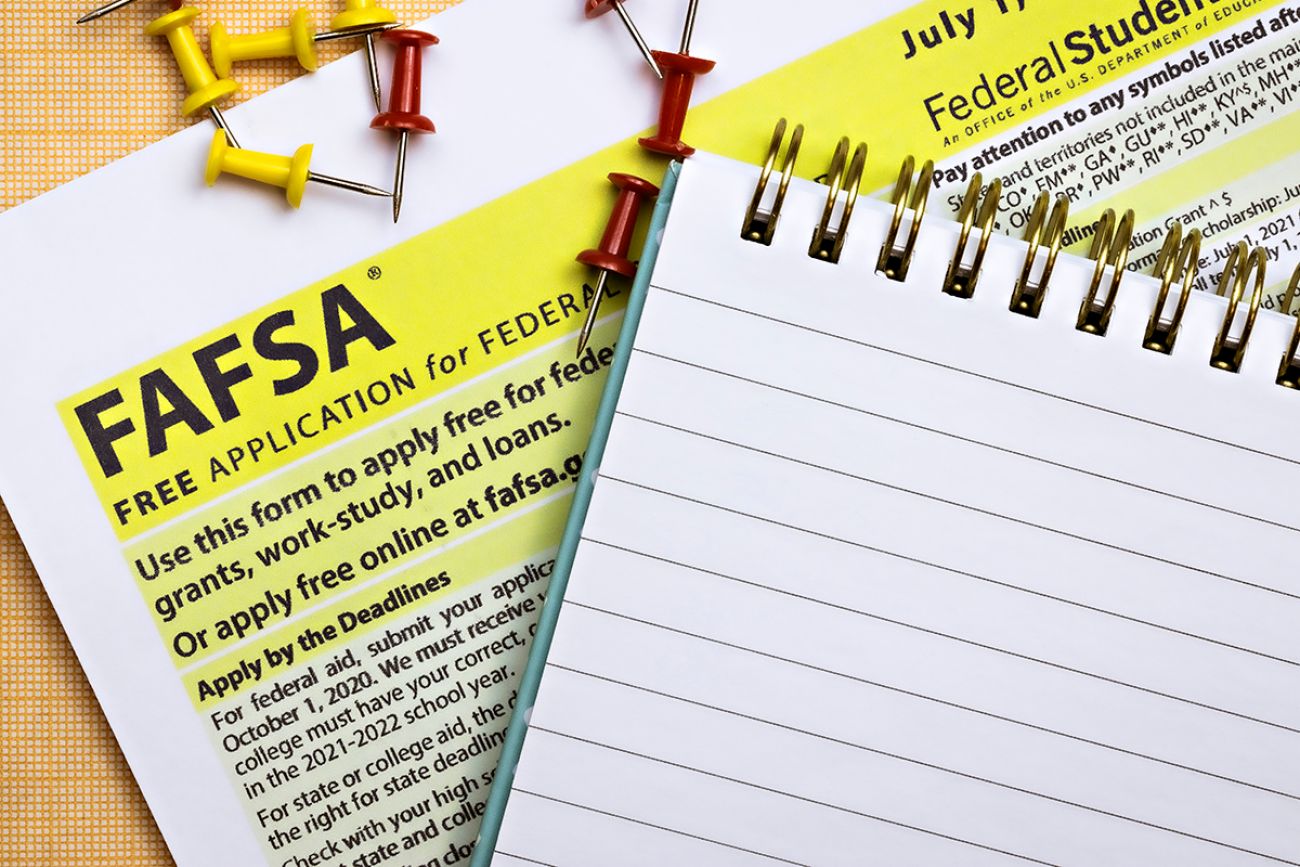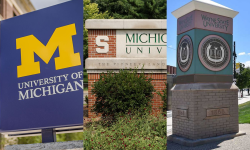Michigan Achievement Scholarship: How to apply and get your college funds

- A new state scholarship program offers up to $5,500 a year for college
- The program, when fully implemented, will cost the state $562 million a year
- Most students will qualify, as long as they fill out the FAFSA
College will be more affordable for most Michigan college freshmen next year, thanks to the new Michigan Achievement Scholarship.
The program will cost the state an estimated $169 million in the 2023-24 fiscal year and over $562 million four years later. More importantly to families, it will knock thousands of dollars off tuition and fees.
Related:
- Micro-grants and life credits: How Michigan is reducing barriers to college
- CMU, Western and Ferris State boost first-time fall student enrollment
- Michigan to invest $560M on scholarships to ease college affordability crisis
- Who is running for University of Michigan, MSU and Wayne State boards?
This scholarship program, supported by Republican leaders in the Legislature and Democratic Gov. Gretchen Whitmer, is simple to apply for and has fewer restrictions than some of the state’s prior college aid efforts.
Here’s what you need to know:
How much money can students get?
The program offers up to $5,500 for students enrolled at any of Michigan’s 15 public universities. The program also will provide up to $4,000 per student at the state’s private nonprofit colleges and up to $2,750 per student at community colleges and tribal colleges.
The scholarship is renewable, for up to five years of school.
A related program would grant $2,000 for up to two years at a “qualified occupational training program” like those for manufacturing, information technology, health care and the construction industry.
Who is eligible?
Students who graduate from high school or earn a high school equivalency starting in 2023.
Students must attend college full-time, maintain satisfactory academic progress and apply for all available scholarship aid each year that the student applies for the scholarship, according to the language of the bill.
Students must be a Michigan resident for at least a year, enroll at a Michigan college and have an expected family contribution to college expenses of less than $25,000 a year, as determined by the Free Application for Federal Student Aid (FAFSA). That sounds low, but it’s not. The expected family contribution for the average American household, with an adjusted gross income of $55,000, is typically around $3,000 to $4,000.
An online calculator estimates that a family of four with one college student could have an adjusted gross income of $108,000 and qualify.
So the new program doesn’t help students already in college?
For now, at least, the scholarship program is only available for students graduating from high school beginning next spring.
“Perhaps there are going to be other opportunities for us to bring down the cost for people who (are) already … enrolled,” Whitmer told reporters Tuesday. “But this pertains to this upcoming class and the classes beyond.”
Current college students have some, more limited, state aid options.
Michigan students now in college are eligible for the Michigan Competitive Scholarship of up to $1,500 a year, but that grant is only available to students who score 1200 or higher on the SAT. Most residents who are 25 or older can attend Michigan community colleges tuition-free through Michigan Reconnect. But those who don’t live in a community college district are excluded.
How do I apply? How will I know if I get it?
Fill out the FAFSA. That form will automatically qualify you for consideration for the new state scholarship, as well as federal Pell Grants.
When you apply and are accepted to college, school officials will inform you how much financial aid you are getting from various sources.
Dawn Aubry, vice president for enrollment management at Oakland University, said her biggest advice is for students to fill out the FAFSA and apply to multiple schools to see different financial aid offers.
She told Bridge Michigan the scholarship “should be able to lift more barriers.”
Getting high school seniors to complete the FAFSA, though, has been a challenge. Michigan ranks 29th in the nation in FAFSA completion rate, at about 52 percent of graduating seniors.
I live in a Promise Zone and am already getting free tuition. Does this mean the state sends me a check?
No. The Michigan Achievement Scholarship is capped at actual college expenses.
Michigan has 15 “Promise Zones” that offer free or reduced tuition to some colleges and universities. Many other students receive some institutional financial aid. If tuition is paid for through other aid, some Michigan Achievement Scholarship funds can be used for other college expenses, such as room and board.
Even in that case, though, money goes to the institution at which you are enrolled to apply to expenses, not to you directly.
Isabel Lohman contributed to this report.
Michigan Education Watch
Michigan Education Watch is made possible by generous financial support from:
Subscribe to Michigan Health Watch
See what new members are saying about why they donated to Bridge Michigan:
- “In order for this information to be accurate and unbiased it must be underwritten by its readers, not by special interests.” - Larry S.
- “Not many other media sources report on the topics Bridge does.” - Susan B.
- “Your journalism is outstanding and rare these days.” - Mark S.
If you want to ensure the future of nonpartisan, nonprofit Michigan journalism, please become a member today. You, too, will be asked why you donated and maybe we'll feature your quote next time!





